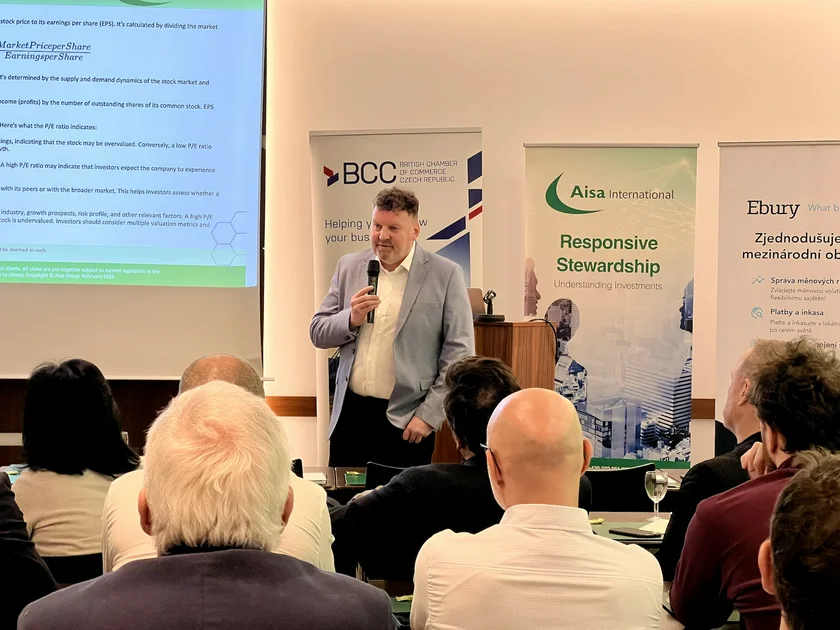With more than 20 years of experience in the wealth-management industry, investment expert and owner of a leading investment firm James Pearcy-Caldwell has, in a comprehensive series, offered insightful financial advice.
The co-founder of Prague-based investment firm Aisa International, part of Aisa Group offering global financial services, wraps up his articles by taking a step back and asking: “What is the difference between someone lucky and skilled? What is the difference between being wealthy and appearing rich?”
Are you lucky or skilled?
Pure momentum, driven by speculative investors, often inflates short-term returns without the need for overt skill, Pearcy-Caldwell says. This attracts more participants, reinforcing the belief that investing is “foolproof.” As excitement grows, risk management is neglected, and more capital flows into unsustainable strategies.
“Good investment returns often lead inexperienced investors to think they have somehow become skilled investors, and that luck has played no part,” he says.
This underlines the imperativeness of a wealth manager.
The myth of imitation
Why don’t mathematical geniuses or rocket scientists consistently outperform the market? Why doesn’t copying investor and billionaire Warren Buffett’s strategy guarantee success?
Many try to replicate the success of renowned investors, yet widely adopted strategies often lose effectiveness, Pearcy-Caldwell observes. The uniqueness that once made them successful disappears when imitated by the masses.
“Once uniqueness becomes commonplace, it ceases to be unique, making imitation ineffective.”
Additionally, two key barriers exist: first, it takes decades to build compounding returns, and second, historical market conditions rarely repeat exactly.
Rich vs wealthy
“Why do so many prioritize appearing rich over actually building wealth?” Pearcy-Caldwell asks. “Why do people consider the car they are driving an asset, when it is clearly a liability?”
Understanding the difference is crucial.
Being "rich" is associated with a high income, luxury goods, and extravagant lifestyles. However, these visible signs of wealth are often financed by debt rather than financial security, Pearcy-Caldwell says.
“The key lies in balancing the desire for visible wealth with the discipline of wealth-building strategies.”
On the other hand, wealth is about owning assets that generate income and grow over time—investments, real estate, and businesses. True wealth isn’t always visible but ensures financial security and long-term prosperity.
While being rich and wealthy aren’t mutually exclusive, prioritizing appearances over financial health can be damaging.
Disclaimer: Trading financial instruments carries risks. Always ensure that you understand these risks before trading.












 Reading time: 2 minutes
Reading time: 2 minutes 




















